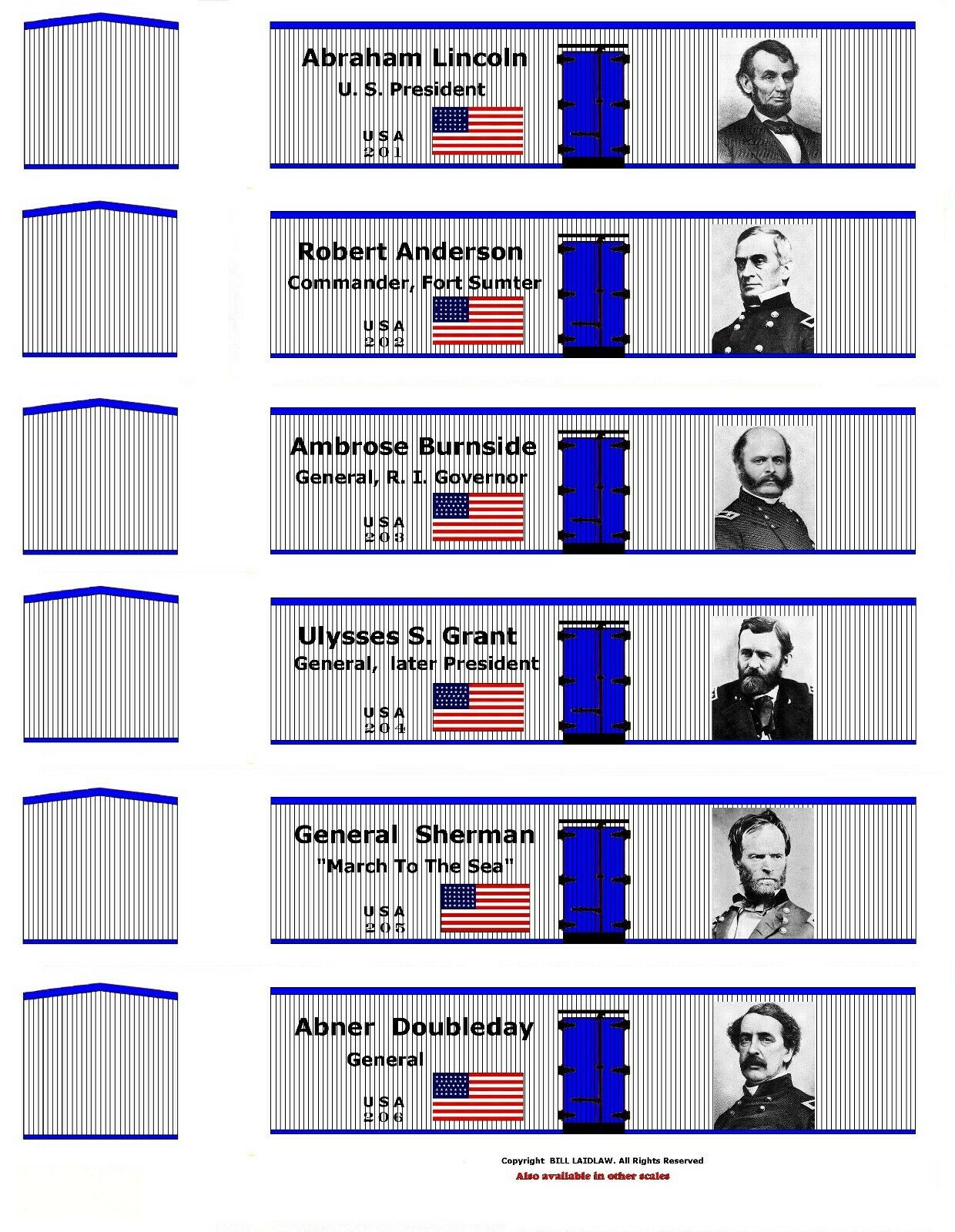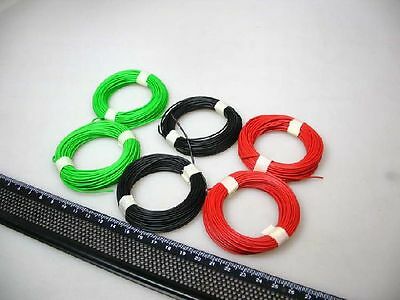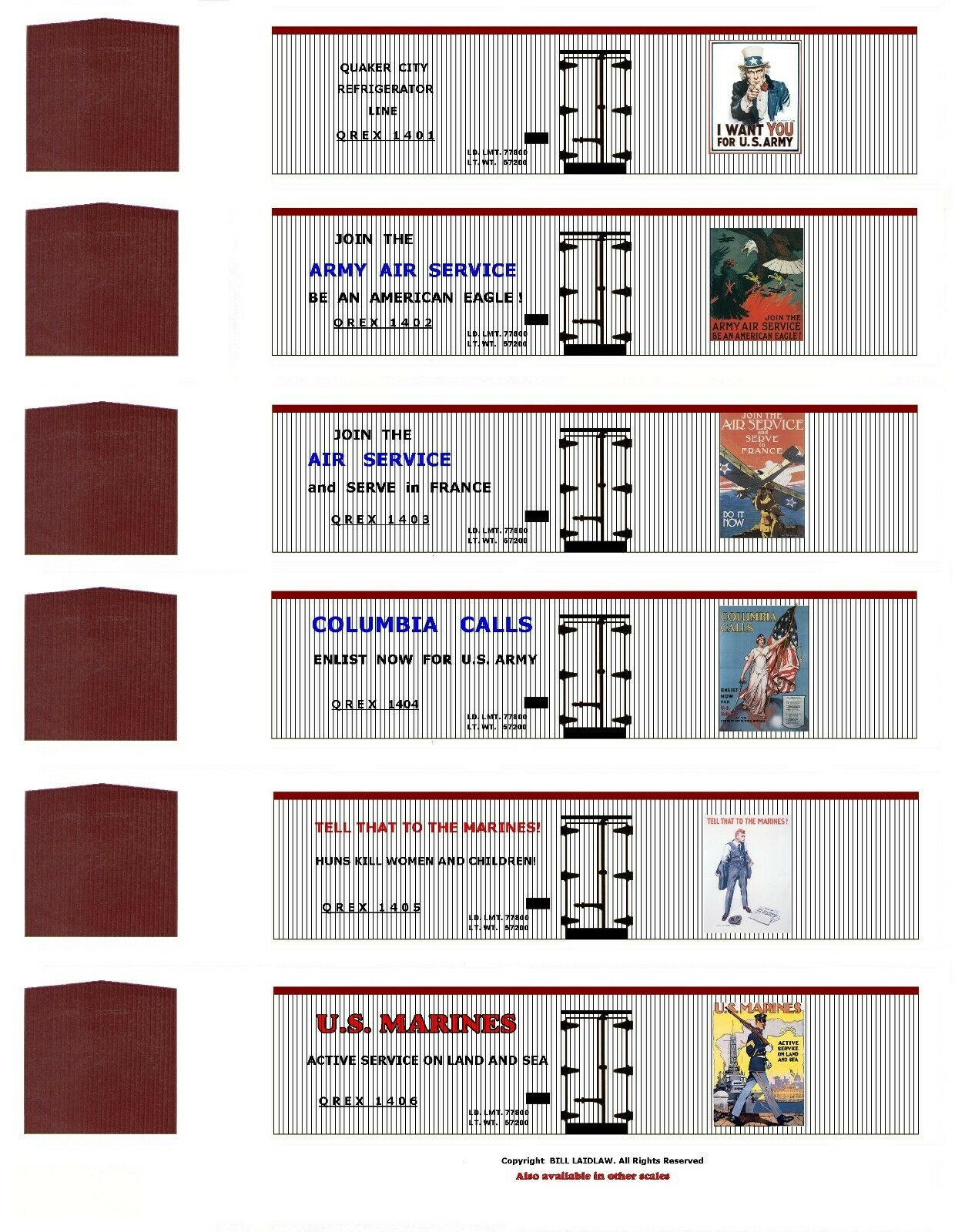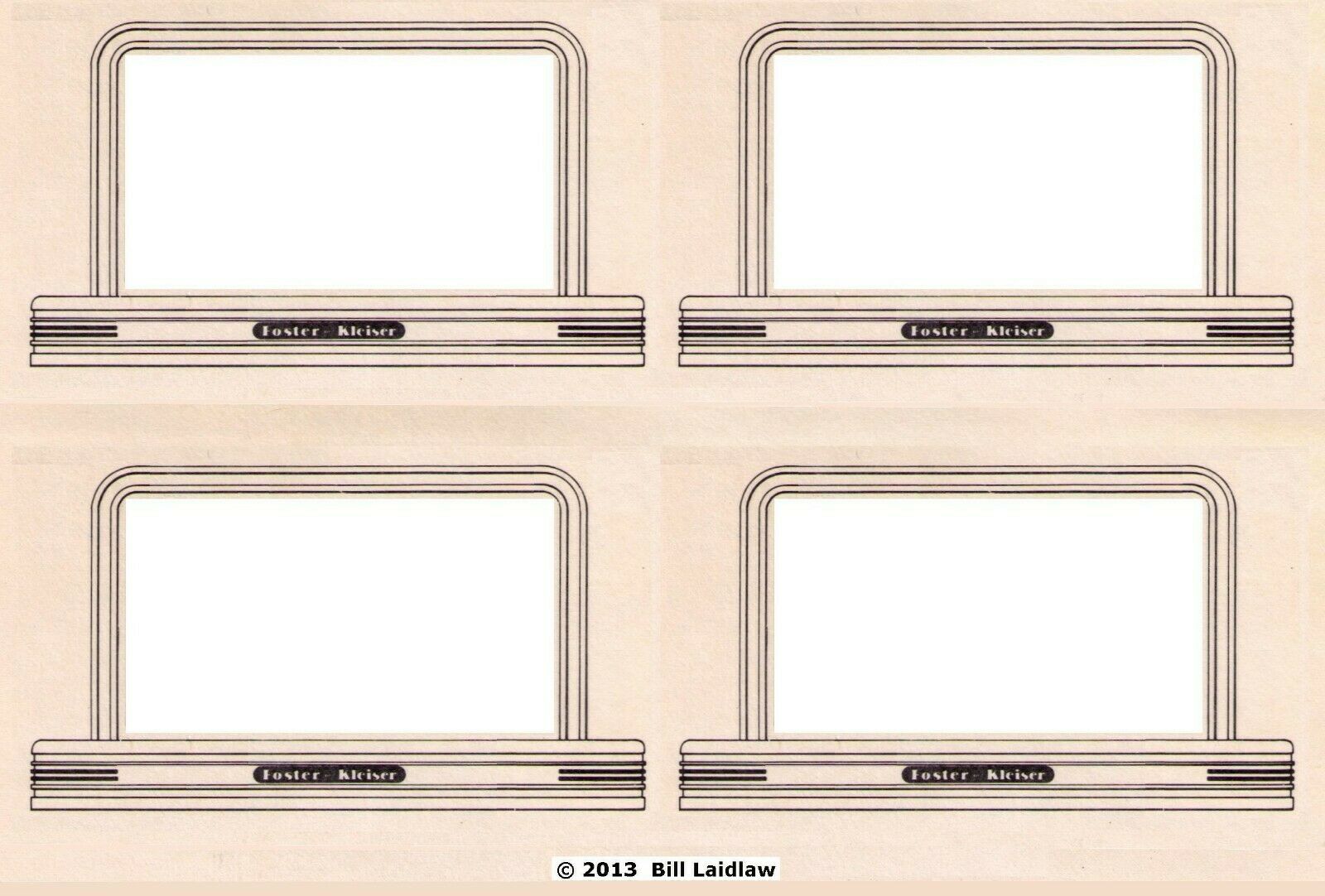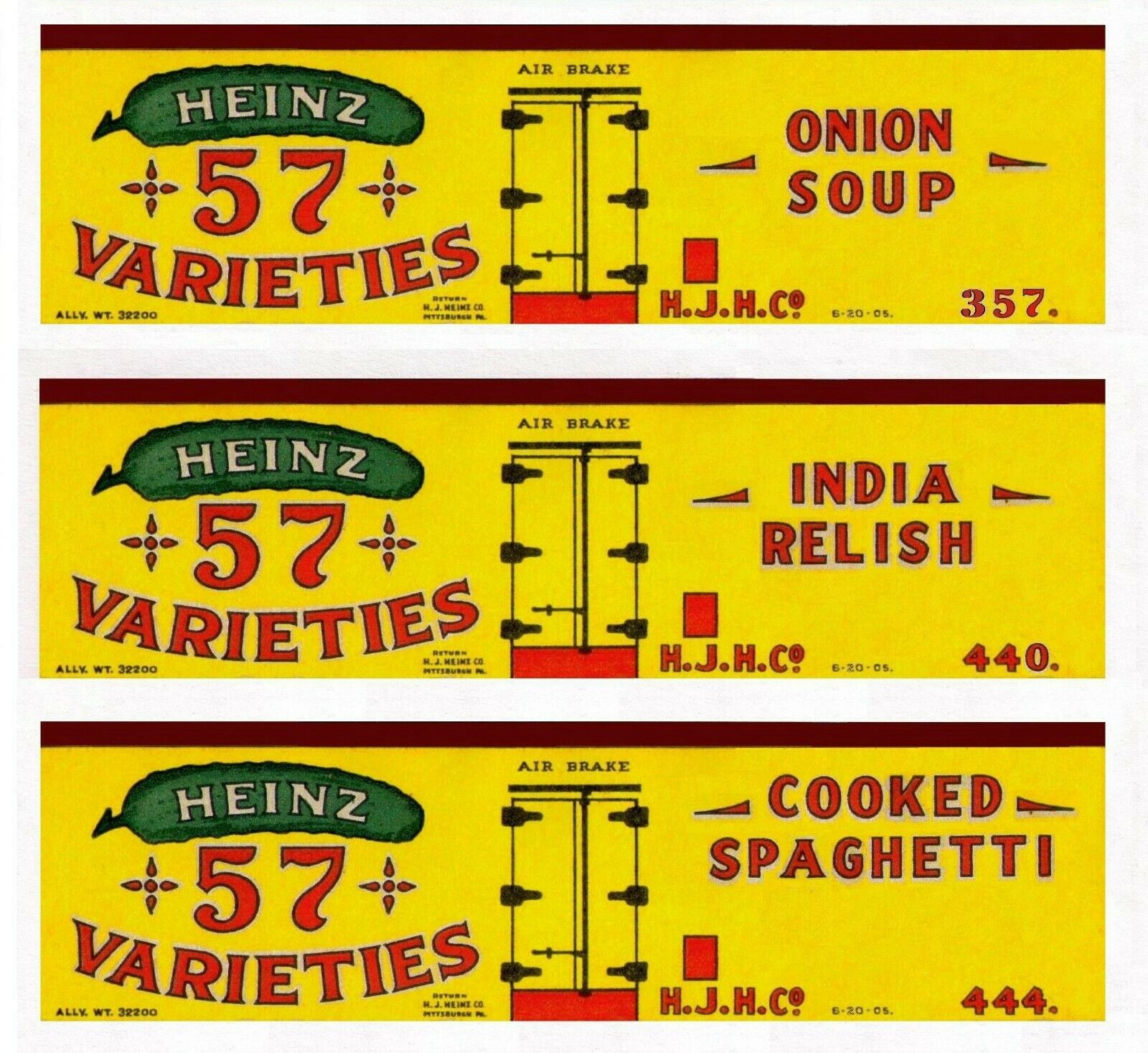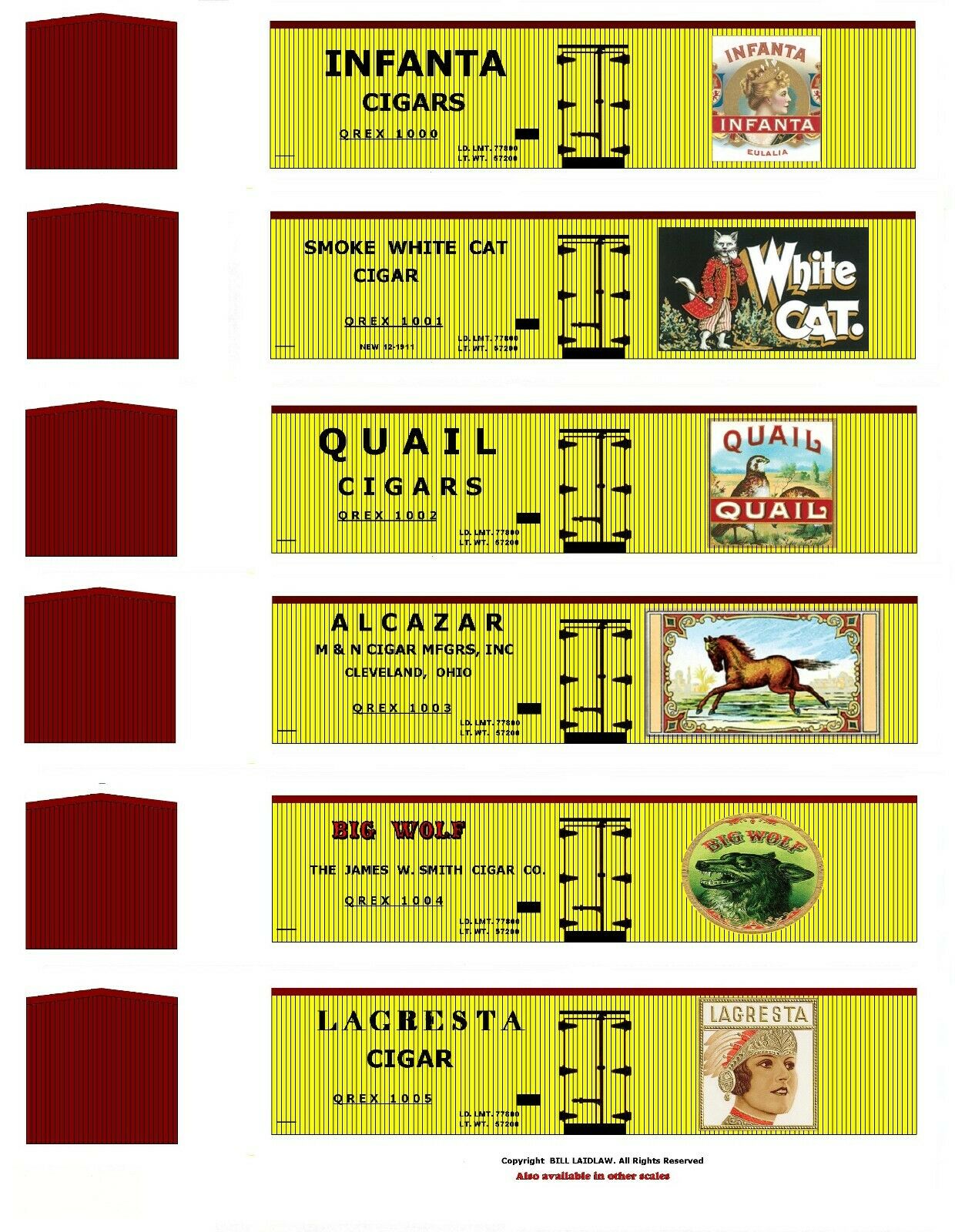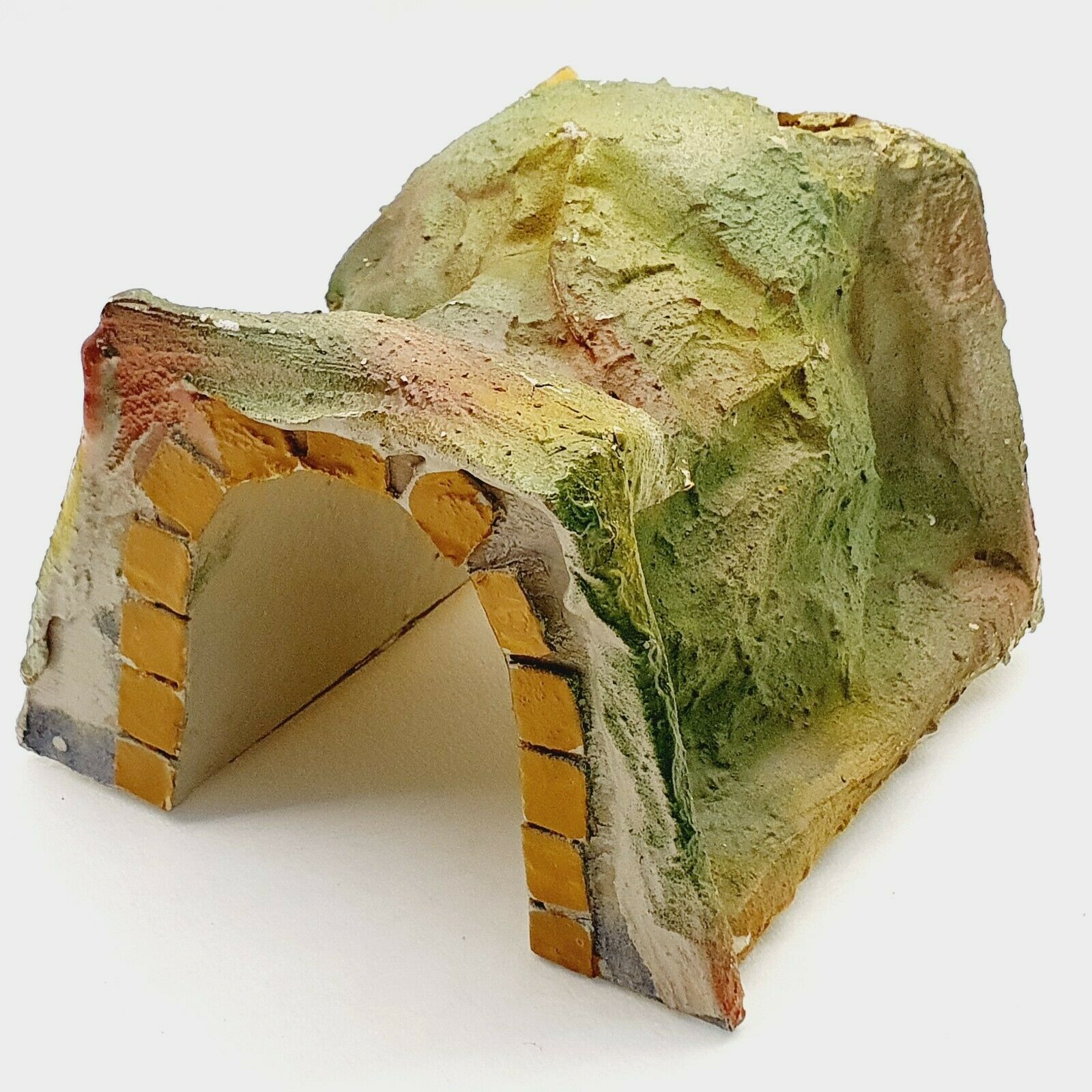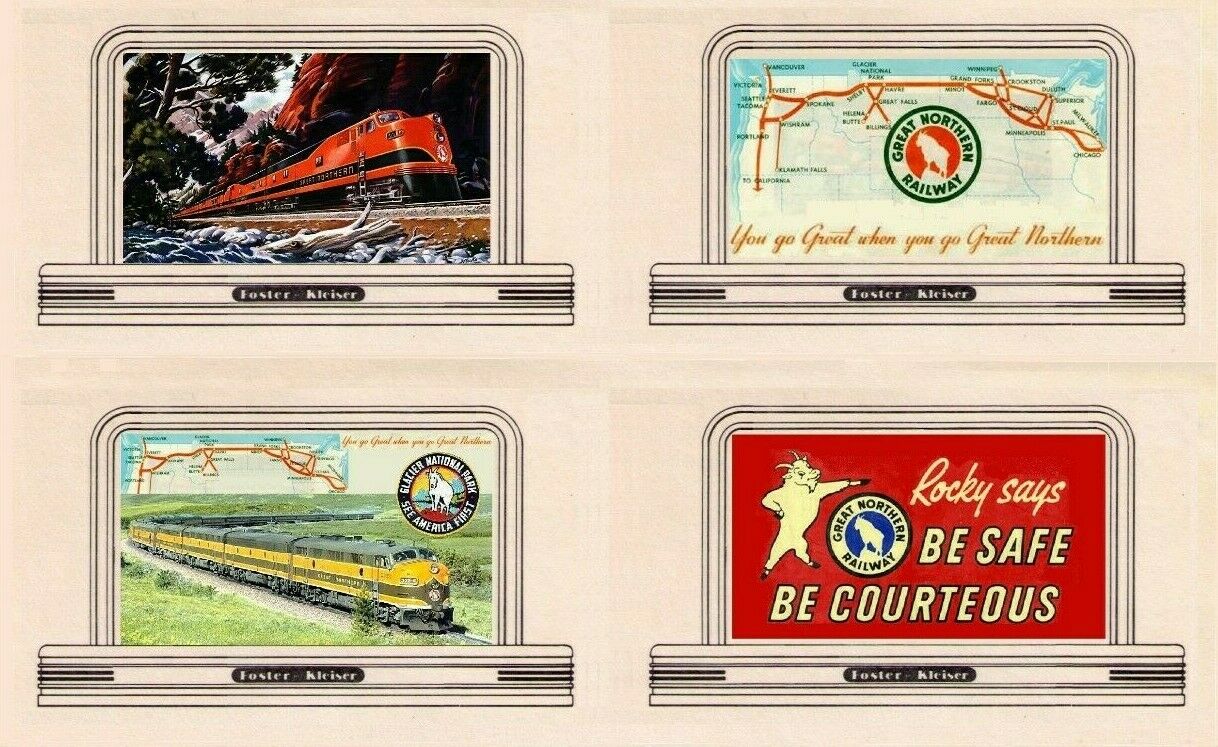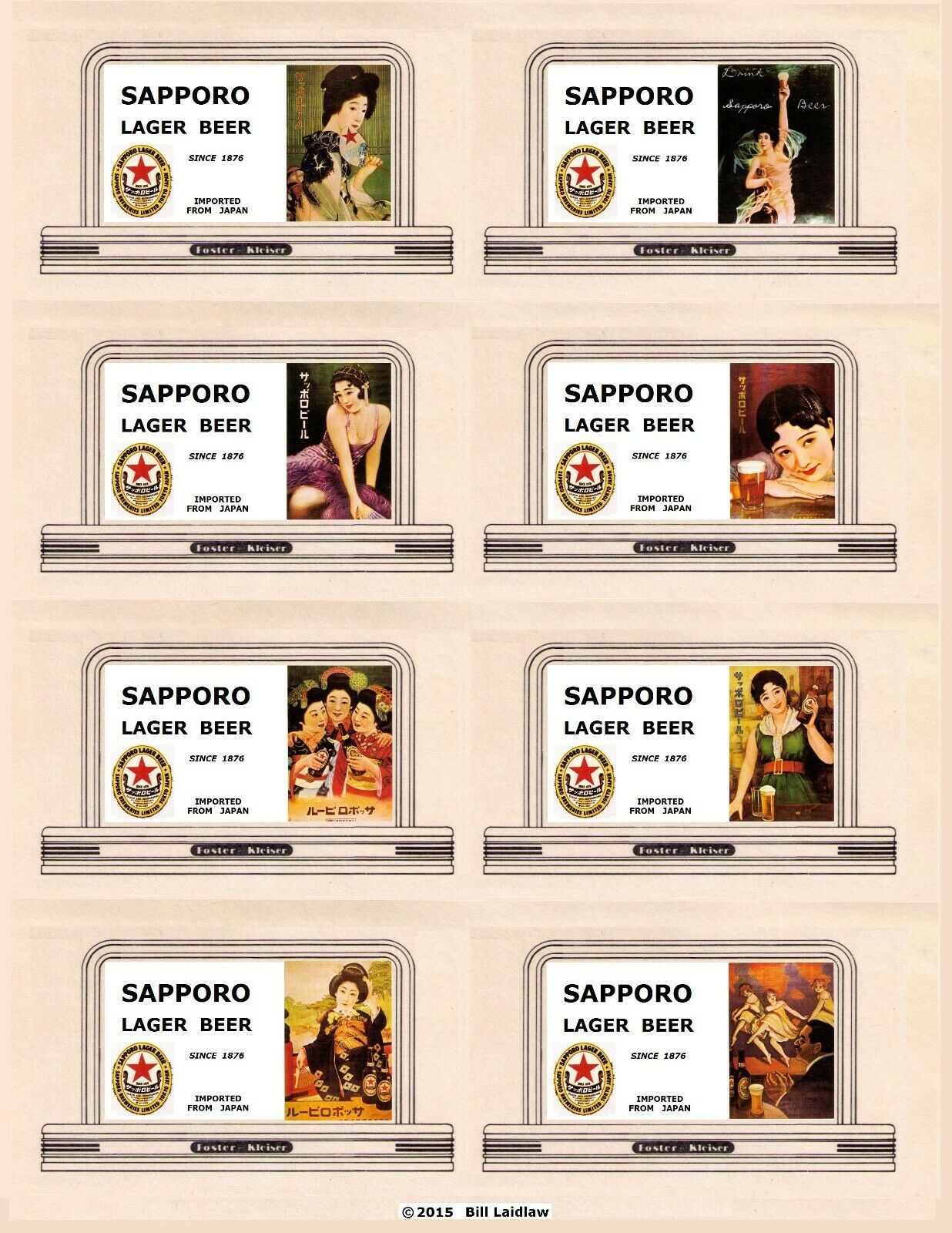-40%
Civil War train 46-boxcar set, TT scale printed reefer sides
$ 15.83
- Description
- Size Guide
Description
TT scale is between HO and N scale in size. Civil War Train set, 46 pair of sides for 46 boxcars. 92 car sides printed full color on cardstock for 46 wood-era 40-foot long boxcars. If you don't want to build boxcars from scratch or use them with a kit you already have, you could glue them to the sides of an existing boxcar that you have or buy on ebay.USA# 201 features President Abraham Lincoln
USA# 202 is the Commander in charge of Fort Sumter when it was attacked, starting the war
USA# 203 is General Burnside, who was less famous for his exploits than his distinctive sideburns, coined by reversing his last name
USA# 204 is General U. S. Grant, who would accept Lee's surrender and go on to run for President in the 1870s & win
CSA# 101 features the Confederate President Jefferson Davis
CSA# 102 is the Confederate General in charge of shelling Fort Sumter, starting the war
CSA# 103 is General Braxton Bragg.
CSA# 104 is General Nathan Bedford Forrest
USA# 205 General Sherman, whose "March To The Sea" brought total war to civilians in 1864
USA# 206 General Abner Doubleday, first to reach a canon in Fort Sumter and return fire, making his the first shot fired from the Union side
USA# 207 is David Farragut,
"Damn the torpedoes, full speed ahead"
USA# 208 is Winfield Scott Hancock, who defeated Pickett's Charge
CSA# 105 features General Stonewall Jackson
CSA# 106 is General James Longstreet
CSA# 107 is General John Bell Hood.
CSA# 108 is Henry Timrod
USA# 209 features General Joseph Hooker
USA# 210 is General Philip Kearny
USA# 211 is General George McClellan
USA# 212 is Robert Shaw, Commander of the First Free State Negro Regiment. If you saw the Civil War movie "Glory," he was portrayed by Matthew Broderick
CSA# 109 features General Robert E. Lee
CSA# 110 is General Jubal Anderson Early
CSA# 111 is Confederate Ranger John Singleton Mosby
CSA# 112 is Roy Bean, blockade runner for Texas & later Judge
USA# 213 features General Meade, Victor at Gettysburg
USA# 214 is General Philip Henry Sheridan
USA# 215 is General Lew Wallace
USA# 216 is Sec. of the Union Navy, Gideon Welles
CSA# 113 features General George Pickett of "Pickett's Charge" at Gettysburg
CSA# 114 is Guerrilla commander William Quantrill
CSA# 115 is General Jeb Stuart
CSA# 116 is Confederate spy Belle Boyd
CSA# 117 is John Wilkes Booth, a Southern sympathizer but not soldier
CSA# 118 is Horace Greeley, abolitionist publisher
USA# 217 features Clara Barton, who organized America's 1st large female nurses corps & later founded the Red Cross
USA# 218 is Mathew Brady, photographer
USA# 219 is abolitionist John Brown
USA# 220 is Captain George Armstrong Custer. During the war, Custer's answer to every question was to charge. Though victorious, his Michigan unit had the largest losses of any Union unit at Gettysburg - over 80% casualties
USA# 221 John Wilkes Booth, assassin of President Lincoln
USA# 222 Frederick Douglass, abolitionist
USA# 223 is Barbara Fritchie, whose U.S. flag was still flying when Confederate troops marched into town
USA# 224 is Julia Ward Howe, abolitionist author "Battle Hymn of the Republic"
USA# 225 features Harriet Beecher Stowe, abolitionist author of Uncle Tom's Cabin
USA# 226 is Louisa May Alcott, abolitionist nurse in Washington, DC
USA# 227 is Josiah Henson, inspiration for Uncle Tom's Cabin
USA# 228 is Dred Scott (1795-1858)
Stonewall Jackson was so well remembered that three US Navy ships have been named after him including a WW2 Liberty Ship and a nuclear submarine (retired in the 1990s) though he was accidentally shot by friendly fire and did not survive the war. General Hooker saw nothing wrong with the tent city of prostitutes that followed his troops and set up each night alongside the camp. Newspapers started calling the prostitutes "Hooker's Brigade" and then simply "hookers." At the start of the Civil War, all doctor's assistants were male, usually fellow soldiers with no medical experience; Clara Barton recruited at least a thousand women as nurses during the War. Mathew Brady bought 10,000 glass photographic plates for 0,000 to chronicle every battle of the war, and the dead and wounded after battles. But neither the public or the government were interested in his photos at the time and he went bankrupt, eventually dying in the charity ward of a hospital.
Before the war, abolitionist John Brown led about two dozen men, black and white, on a raid of U.S. weapons stored at Harper's Ferry, taking hostages there. They hoped to give the weapons to black former slaves to start a war against slavery. But a group of farmers and volunteers led by then U.S. General Robert E. Lee arrested Brown and killed or captured all his men. President Lincoln offered to put Lee in charge of the entire Union Army but Lee declined, saying he must serve his state if it seceded, which it did. Ranger Mosby was as famous as any Confederate General at the time. He survived the war and a young neighborhood boy named George Patton loved to hear him tell war stories about leading his men deep into enemy territory independent of the rest of the army. Patton grew up to be a General himself, in WW2. Booth was the most popular actor in America at the time, the last person one would expect to be an assassin. Barbara Fritchie's home is now a museum, containing the bullet-ridden flag, and was visited by Winston Churchill while in America. Barbara Stanwyck chose her stage name Barbara when she was playing Fritchie in a play during the silent movie era
Roy Bean would later be known as the Hanging Judge of Texas, but during the war he was a blockade-runner, taking Texas cotton to British ships offshore for much needed gold. Both the British and French were close to officially recognizing the Confederacy when Lincoln freed the slaves, which would have made it look to Europe like they were siding with slavery by recognizing the CSA. When President Lincoln met Harriet Beecher Stowe a decade after publication of her book, he said to her so this is the lady who started this war. The book was a best-seller in America and England second only to the Holy Bible, plus an estimated 1,000,000 bootleg copies. Alcott was an abolitionist and nurse during the war; later she would write the novel "Little Women" about a family of Northern women trying to find husbands during the Civil War. Josiah Henson was a heroic escaped slave and Methodist preacher. His autobiography inspired Stowe to write her famous novel. Henson's autobiography was released as the biography of Uncle Tom, and his birthplace is now a museum known as the real Uncle Tom's Cabin. Dred Scott was a slave who fought for freedom all the way to the Supreme Court, which ruled that according to the laws of the time, he must be returned back to his owner in a slave state, enflaming the abolitionist cause. Later, New York State would pass a state law forbidding slave hunters from capturing escaped slaves in New York, or bringing slaves with them as servants while visiting New York, enraging the South and named as one of their reasons for seceding later on.
Simply cut balsa or basswood to the size of the ends and then glue on the printed cardstock sides. A one-sheet of their instructions will be included with your purchase, or you could just glue them to the sides of an existing 40' boxcar with Elmer's glue. Strombecker suggested putting a 3rd piece of wood in the center to keep the sides from bowing, while Red Ball used solid wood sides.
Or buy old boxcars on Ebay and glue these sides onto the sides, or even build your own boxcars and glue them to boxcar frames that come up for sale from time to time on Ebay with trucks and couplers already attached. Ordinary Elmer white glue or Testors wood cement should work just fine and give you plenty of time to position each side just right, these are not stickers.
You could even buy plastic boxcar or reefer doors from another Ebay vender and glue them to the center for more of a 3-d look, and/or attach metal-type scale ladders to the side. These would fit right in with any steam or early diesel-era layout.
If you don't like it, simply send them back for a full refund.
Note: shipping is about the same rate for US, Canada and world-wide!
